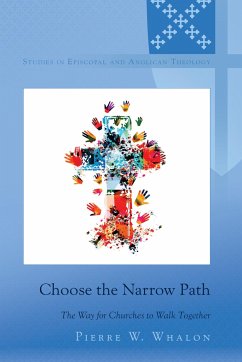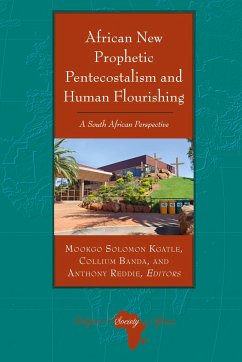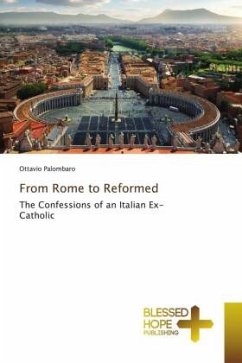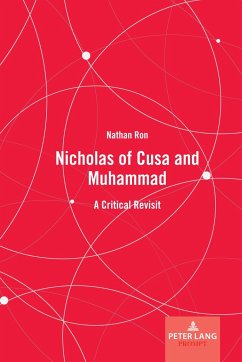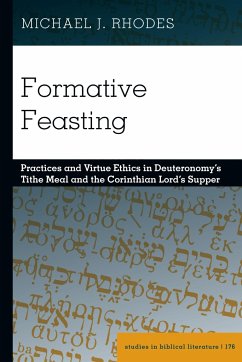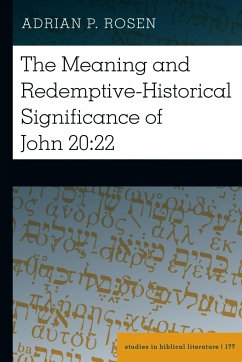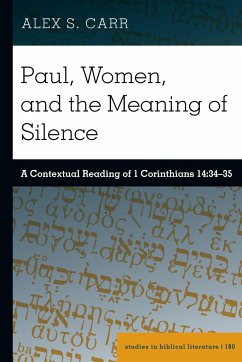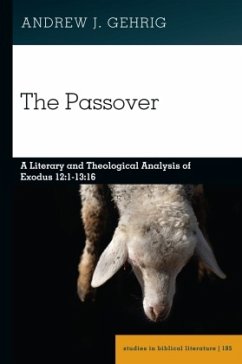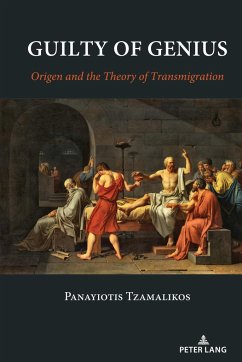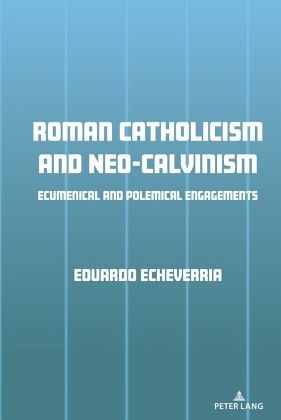
Roman Catholicism and Neo-Calvinism
Ecumenical and Polemical Engagements

PAYBACK Punkte
0 °P sammeln!
In Roman Catholicism and Neo-Calvinism, author Eduardo Echeverria asks: what do Rome and Amsterdam have to say to each other? Is there any common ground between the traditions of Roman Catholicism and Dutch neo-Calvinism on crucial philosophical and theological topics such as faith and reason, anthropology, sexual ethics, and the development of Christian doctrine? Furthermore, beyond ecumenical engagement the author polemically engages the conflicting truth claims of these two traditions on the above topics.This book addresses these questions in the thought and work of key individuals from bot...
In Roman Catholicism and Neo-Calvinism, author Eduardo Echeverria asks: what do Rome and Amsterdam have to say to each other? Is there any common ground between the traditions of Roman Catholicism and Dutch neo-Calvinism on crucial philosophical and theological topics such as faith and reason, anthropology, sexual ethics, and the development of Christian doctrine? Furthermore, beyond ecumenical engagement the author polemically engages the conflicting truth claims of these two traditions on the above topics.
This book addresses these questions in the thought and work of key individuals from both sides of the divide, including St Pope John Paul II (Karol Wojtyla, 1920-2005), St Thomas Aquinas, and St Vincent of Lérins (died c. 445), on the one hand, and Herman Bavinck (1854-1921), G.C. Berkouwer (1903-1996), and Herman Dooyeweerd (1894-1977), on the other.
This book is an important example of receptive ecumenism, an approach to ecumenical dialoguein which the interlocutors seek to identify and exchange the distinctive gifts of each tradition for the benefit of the whole. It will appeal to all ecumenists and to those teaching courses in ecumenical theology.
This book addresses these questions in the thought and work of key individuals from both sides of the divide, including St Pope John Paul II (Karol Wojtyla, 1920-2005), St Thomas Aquinas, and St Vincent of Lérins (died c. 445), on the one hand, and Herman Bavinck (1854-1921), G.C. Berkouwer (1903-1996), and Herman Dooyeweerd (1894-1977), on the other.
This book is an important example of receptive ecumenism, an approach to ecumenical dialoguein which the interlocutors seek to identify and exchange the distinctive gifts of each tradition for the benefit of the whole. It will appeal to all ecumenists and to those teaching courses in ecumenical theology.





